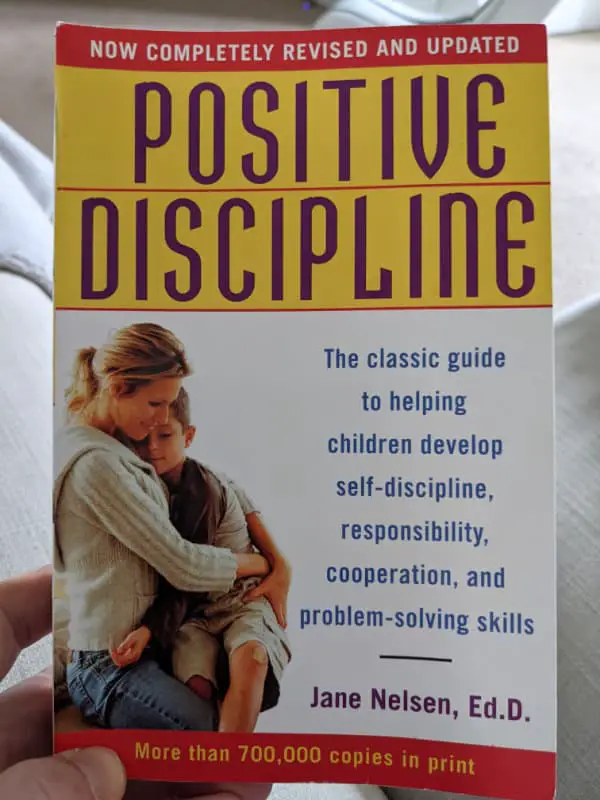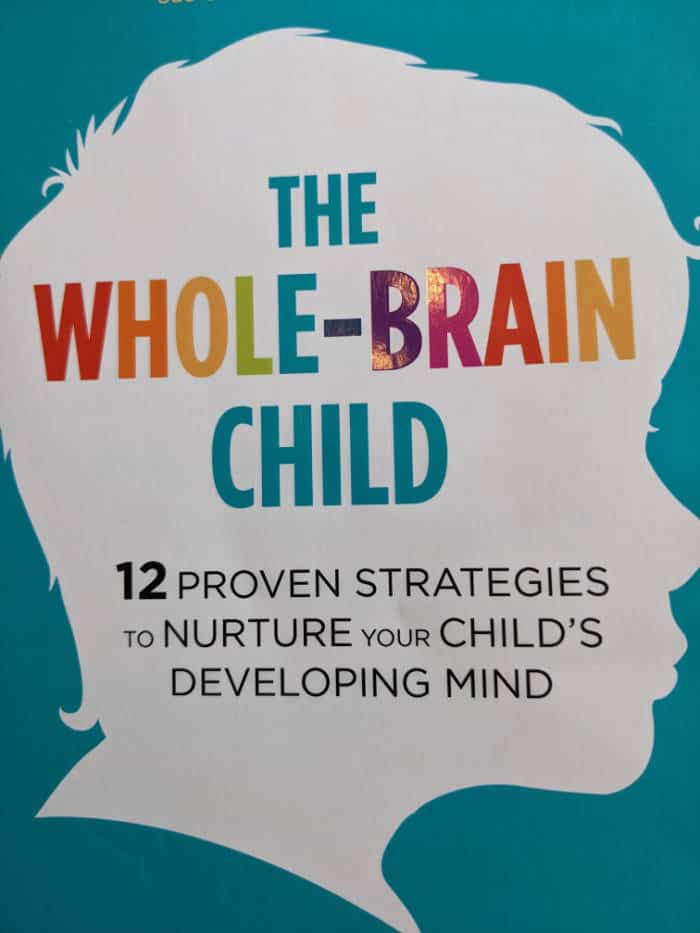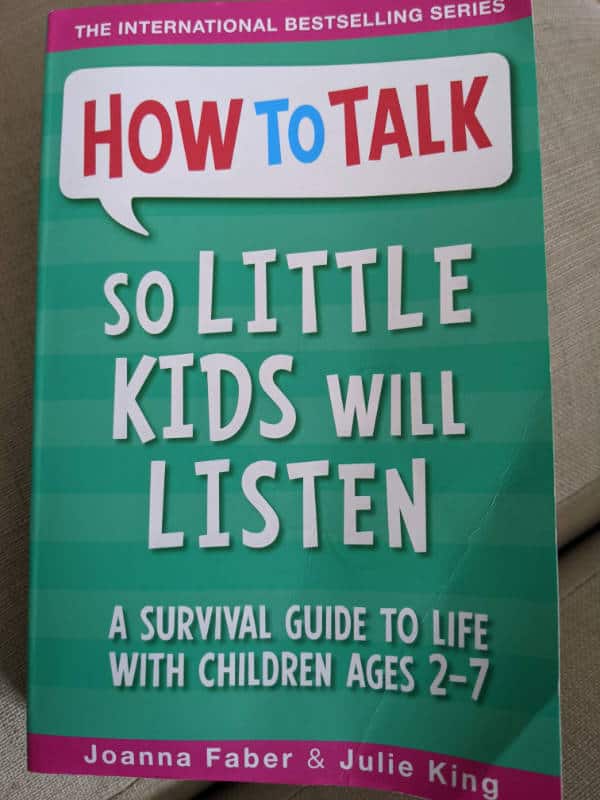There’s no ‘right’ way to parent. Every parent or guardian and every child is different. There WILL be difficult times. Children can test you to your limits and often do. It’s part of growing up.
However, that’s not to say that the journey has to be difficult. There are proven techniques nowadays and ways that you can ease the stress. Most of these techniques stem from understanding what’s going on in your child’s mind.
As our understanding has grown, so has the number of online courses and available parenting books. We spent hours upon hours recently going through the top offerings and here are some of the top tips we picked up along the way….
Table of Contents
Tantrums and Misbehavior
Young Kids Are All Emotions – If they don’t feel right, they won’t behave well
Whilst they might look like smaller versions of you or your partner, kids aren’t mini adults. You should never think of them as this! Their brains haven’t developed to have anywhere near the understanding or self control you have. The brain is 90% grown by the time they are five, but the rational part of the brain doesn’t develop fully until they are 25 years old.
When they’re babies, children are literally all emotion, all they can do is cry when something isn’t the way they want it. In fact that’s how they tell you something is wrong. I’m hungry so I’ll cry. Tired… cry. Frightened? Uncomfortable? … cry!
Even when a child is older and is able to talk, their emotions are extremely powerful and have a large part to play in their reactions. If something isn’t right, and they don’t feel right they won’t react with any sense of reason or control.
You might see bad behavior, but they’ll just be acting uncooperatively because they have feelings and emotions they can’t control and can’t put into words.
Give them the words for their feelings
When those powerful and overwhelming emotions are taking over your child, there’s a way you can help them to understand and learn from the process.
When they are upset about something, frustrated, disappointed, angry, help them, give them the words. Also empathise by letting them know that you feel those same emotions and maybe talk about what you do in those circumstances.
“I can see you are disappointed about losing that game. When you lose at something, I think there are only 2 things you can do, take a break or take a deep breath and try again. That’s what I do.”
“Oh no, the tower you were building fell down. That’s very frustrating. I was frustrated when I tried to build a house of cards the other day and it fell down a lot! I had to try again and again and again….”
What’s really the issue?
So kids don’t behave well when they’re not feeling right. Then for any tantrum, explosion or misbehavior there’s normally an underlying problem. It’s your job as a parent to figure out what that is and solve it.
It might not be what you think it is either.
Homework causes a blowup? Take some time to understand why. Ask a few questions, but give them time to think through their answer. Is the desk chair uncomfortable? Which subject is the issue? Their pen hard to hold? Do they just need help with writing?
Finding and working on a solution to an issue together is a great way to improve your parental relationship. Also if a child is invested in a solution to a problem, you can bet they’ll be more inclined to help make it work.
Consequences, consequences, consequences
You can win over children easily. You’re bigger, smarter, more powerful, in charge of so many things. You can shout, you can withhold privileges, you can frighten and you can inflict more cruel and unusual punishments on a child than they ever could on you.
You might think you’re being fair when a certain behavior results in a removal of a privilege. However, what do you think this teaches them? Consequences? One thing results in another? Eventually yes, you can control behavior with this method. It’s how we are controlled right? Laws, fines, prisons etc. But what are you doing to your relationship with your child by taking away their privileges, shouting at them or making them sit in the corner? Do you actually think they’ll learn anything positive from the experience?
Obviously this doesn’t work for every scenario, but where it’s possible, winning them over is a far better solution.
Instead of:
“If you don’t stop shouting and jumping around whilst I’m working I’m going to ban you from this room”.
What about trying to win them over?
“My work is very difficult to do when there are loud noises and distractions. I’d love you to work here with me, but can you think of something you could do that’s quiet?”
Empathize and really listen
When children are upset, you need to get them back from the brink as quickly as you can. They need to feel that you’re not just shutting the door on their emotions and waiting for them to calm down.
When your children are upset, you need to connect to them emotionally and REALLY LISTEN to what they have to say.
After that’s done THEN you can address what the issue might be.
Give them a hug, show affection, look at them and ask what the issue is and give them a chance to explain but really listen to the answer (no matter how nonsensical the problem might seem to you!).
Hugs anytime anywhere (Even when YOU don’t feel like it)
Imagine this, you’re right in the middle of a tantrum, everyone is stressed. Your child is acting out and being incredibly difficult. Have you ever considered offering them a hug? Or letting them know that as soon as they are ready, there’s a hug available?
You might be surprised by the results. As you know already, young children are controlled by emotion. The quicker you can get them back in control of those emotions the quicker you can diffuse a situation.
So try offering free hugs, anytime, anywhere.
Even when you don’t feel like it.
Send them to a Happy Place
You might have come across the concept of a ‘timeout’ before. When kids are in full tantrum mode, emotions are running wild, you simply can’t reason with them. There isn’t any point in trying. What you and they both need is to calm down first. Often the instinct of the parent is to send them somewhere quiet and boring to punish them. But have you considered making a happy space instead? Somewhere they can go, feel safe, have some of their favorite things and most importantly calm down quickly.
Put together a den in their bedroom, but do it together.
You might think this is counter intuitive… misbehave and get sent somewhere nice? Well they’ll just misbehave all the time if that’s the outcome right?
The key thing to focus on though is what you do when they’re calm. That’s the time to always follow up with some reason, discussion and understanding of the problem. Never leave it open ended.
Praise
Praise the effort not what you see as their qualities
Kids are pretty smart. They know what’s good and what isn’t. If you always praise everything your children do as being ‘Wonderful’. What does that show them? Well firstly that they can’t trust your opinion.
More importantly though, if a child is continually praised for everything they do, you aren’t giving them any understanding of what they’ve actually accomplished. They won’t feel happy with the effort they put in, they’ll just feel happy that you’re happy with them. Sure children love the praise of their parents, but if you praise everything they may start to develop the thinking that they need to seek the approval of others to feel fulfilled. And not understand and get any satisfaction from their own efforts without that approval.
A better option is to simply praise what you see or the effort it took.
‘I like this coloring, I can see you’ve tried really hard to stay within the lines’.
Another way to think about this is to test it out. How would you praise a colleague for passing an exam at work? Would you say ‘I’m proud of you for passing that exam’’? How would you praise them? More like ‘good job’ or ‘your hard work paid off!’.
Life’s Disappointments
Get around disappointment with fantasy
The best laid plans of every parent will fail sometimes. Promised your little one a treat from the toy store? They don’t have any in stock? Fed up of the queues at the amusement park? There are often times when there’s simply nothing you can do about life’s little disappointments.
If something doesn’t go to play, and you can see a tantrum or bad behavior in the pipelines, try talking about how, in your imagination, you’d make it better. What would you do if the amusement park was empty and there were NO queues??? How many times and what would you ride on? What would you do if you owned the toy store?
The simple act of thinking about a fantasy can stop an impending tantrum and help little kids (and older kids) handle disappointment by engaging the reasoning part of their minds in a constructive way before the emotional part has a chance to take over.
Co-Operation
Offer Win/Win Choices
When you want children to do something, offer choices. Children want to feel powerful and like they have some control over their own lives. This is a great trick for getting younger children to do what you want, and even older children if you can think of appropriate choices.
It goes like this:
Not: It’s time for a bath
Instead: Would you like to play the fishing game or blow bubbles in the bath tonight?
Not: It’s time for bed
Instead: Would you like to choose the stories for bedtime tonight or do you want me to?
Not: Please get in the car
Instead: Which of your toys are you bringing on your car journey today?
State your boundaries like they’re general rules
Nobody likes being told what to do. Do you?
Okay, we all have to do what we’re told to some extent, but how often does someone tell you directly to ‘stop doing that’ or ‘do this’ in everyday life? And when they do, if they aren’t authority figures, how does it make you feel?
There’s a neat trick for talking to your children and setting your boundaries in a way that’s not demanding and doesn’t seem controlling. You state them like they’re general rules, and that everyone (or everyone in your household) does them.
Don’t say “Don’t do that” or “I don’t want you to do that”.
You say “We do this….”
Get into their world
When you’re talking to a little child about something and you really want them to listen, get down onto their level. You’re pretty big and imposing to a 3 year old. I mean imagine talking to someone three times your size. If that person was standing up they’d be pretty imposing right?
Bend the knee. Crouch down. You can make a child feel a lot more important, empowered and more likely to listen if you physically get down onto their level.
Trauma
Talk them through trauma
When something bad happens to us, one of the best ways we can overcome the trauma is to talk about it with someone. If you cut yourself in the kitchen, what’s the first thing your partner asks you (after you’ve stopped swearing)?
I’m betting it isn’t “Oh no, let me kiss it better”?
More likely to be “What happened?”, “What did you do?” right?
The simple act of talking through a trauma allows us to process it more quickly and get ourselves back on track. Traumatic events need to be processed, put into words so they can be looked back on, understood and worked through. The process is the same for little children. This can work from bumping a knee to being in a car crash.
So next time your little one hurts themselves, talk through what happened for them, or even better get them to tell you what happened. If they talk through the trauma they’ll be able to calm themselves down more quickly and move on.
“Oh, I saw you running and then your foot hit that tree root and you fell and scraped your knees didn’t you?”.
Or
“Oh, I saw you running and then you were crying, what happened? Can you tell me?”
And finally…
Their Inner Voice
Where does your own little inner voice come from? Have you ever considered who exactly it is you hear when you’re encouraging yourself or berating yourself?
Chances are, it’s the voice or the words of one of your parents. So consider that next time you talk to your children.
The way you talk to them may well end up being their inner voice. How do you want it to sound?








